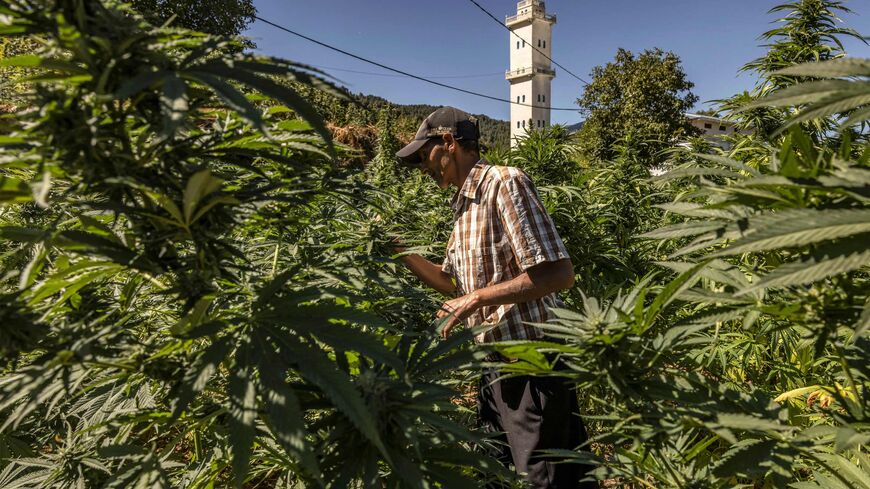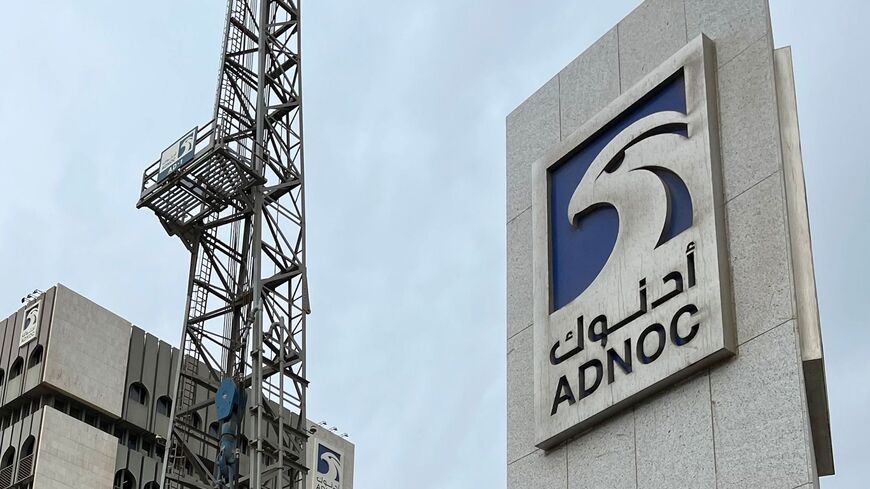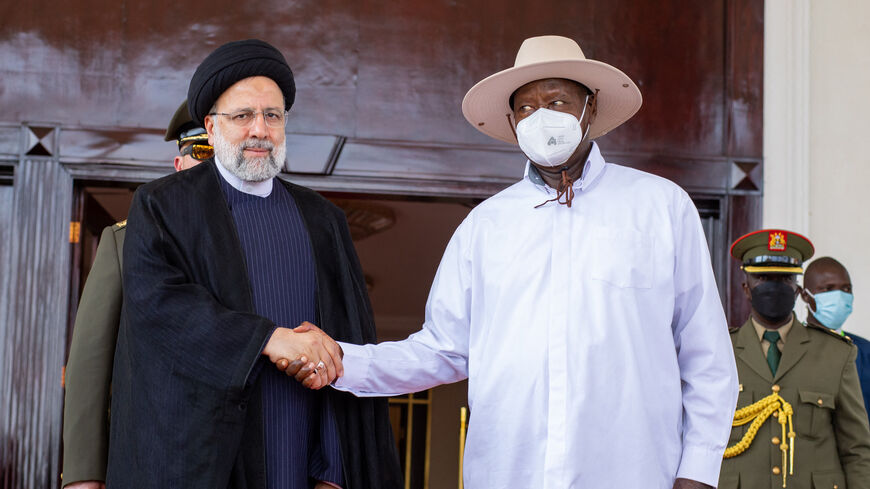Morocco's share in formal cannabis market to remain minimal despite reforms
Al-Monitor Pro Members
Harry Clynch
Journalist & Features Editor at Disruption Banking
June 2, 2023
Morocco, the world’s second largest producer of cannabis, is set to legalize production for medical, cosmetic and industrial purposes. On April 30, the country kickstarted its first ever legal cannabis growing season. In March, it began constructing its first cannabis laboratory. The government in Rabat has claimed that legalization will reduce the power of drug lords by encouraging farmers to move towards the legal industry. The government believes the legal industry could prove to be an economically lucrative opportunity for individual farmers and boost revenues for the government. However, there are questions as to whether local dynamics in the Rif region, where most of Morocco’s cannabis is currently grown, and the prospect of international competition could stunt the government’s attempts to make Morocco a powerhouse for the export of legal cannabis.
- In 2021, the Moroccan parliament passed a law, Bill No. 13.21, that allows for the production of cannabis for medical, cosmetic and industrial purposes. Interior Minister Abdel-Wafi Laftit, who proposed the bill, told the parliament that its main purpose is to improve cannabis farmers’ quality of life. He argued that the legalization of cannabis could double the farmers’ incomes. Bill No. 13.21 states that legalization will give rise to “promising and sustainable” job opportunities in rural areas but prohibits the personal, non-medicinal use of cannabis.
- As outlined by the bill, farmers require a license to produce medical, cosmetic or industrial cannabis. In October 2022, the Moroccan government issued the first 10 permits for the production of legal cannabis products. In March 2023, Bio Cannat, the first Moroccan company authorized to market and export legal cannabis products, began constructing its first laboratory in the Chefchaouen region of Morocco.
- The Moroccan government estimates that sales of legal cannabis products could reach between $420 million and $630 million by 2028. By contrast, according to a 2020 report by the Global Initiative Against Transnational Organized Crime, Moroccan cultivators produce approximately 35,000 tons of cannabis a year, with a street value of around $23 billion, the vast majority of which is destined for illegal export abroad.
- Despite the stark difference in the size of the legal and illegal markets, the Moroccan government hopes to lead farmers into formal production by offering them a larger share of the profits. According to New Frontier Data, farmers in the Rif region receive approximately 4% of the overall profits generated in the illicit market but could be set to receive up to 12% of legal market revenues.
- The Moroccan government believes that this could see farmers achieve substantially stronger net incomes. Agence Marocaine de Presse (MAP), Morocco’s state news agency, has reported that annual net income for farmers could reach 110,000 dirhams ($11,000), which represents growth of 40% compared to current figures.
- According to FDI Intelligence, many in Morocco see the legalization of cannabis production as an opportunity to attract greater amounts of foreign direct investment (FDI). Globally since 2016, 128 products worth $6.5 billion in investment have been announced in the legal cannabis industry.
- These strong levels of FDI come at a time when the world market for legal cannabis products is undergoing rapid rates of growth. According to MAP, the global market for medical cannabis is forecasted to grow by around 30% annually and by up to 60% in Europe. The government hopes that Morocco, which has well-established informal supply chains to Europe, could be a major player in exporting to Europe.
- MAP has reported that the Moroccan government is currently working on two hypotheses. The first is that by 2028 Moroccan producers will be servicing 10% of the medical cannabis market in Europe (worth $4.2 billion out of a $42 billion market). The second is that Moroccan producers could service up to 15% of the European market (worth $6.3 billion).
- The Covid-19 pandemic aggravated a glut in global cannabis supplies, which in turn caused prices for both legal and illegal cannabis products to fall. Income from cannabis farming in Morocco was $346 million in 2020 – down by a third since the turn of the century, according to Bloomberg data. This underlines the inherent volatility in cannabis markets, meaning forecasts should be treated with caution.
Scenario 1: Cannabis farmers continue servicing the illegal market, limiting exports of legal products
Despite the government's belief that legal exports represent an economically lucrative opportunity for individual farmers, there is a risk that independent farmers in remote areas remain loyal to local drug barons and not the central government. On the ground reporting has indicated that farmers are likely to be skeptical of the authorities and could continue servicing their traditional customers in the black market, rather than integrating into a new legal system overseen by the state.
There appears to be little indication that the government has taken local dynamics into consideration when devising the legislation. For example, the government intends for cannabis farmers to come together as collectives for the production of legal cannabis products. However, this takes no account of embedded local rivalries and competition.
Scenario 2: Morocco’s cannabis farmers do shift towards legal production, but fail to compete in the international market
If the Moroccan government succeeds in its attempts to overcome opposition to its measures, which is highly questionable, there is also the possibility that Moroccan farmers will fail to make an inroad in international cannabis markets.
According to Moroccan drug expert Dr. Khalid Tinasti, the global market is already saturated, with major Western corporations dominating the market. The largest cannabis company in the world is Green Thumb Industries, which posts billion-dollar revenues and is listed on the Canadian Stock Exchange. In 2022, North American producers accounted for almost 70% of the industry’s revenue share globally.
It is unclear how small independent farmers in Morocco could compete with such players, particularly given that the pharmaceutical market imposes high barriers of entry. Pharmaceutical markets require strict guidelines to be followed and the use of expensive infrastructure.
Damon Booth, founder of cannabis research company Melabis, has said “if I’m a farmer growing cannabis illicitly in Morocco now, I just need a field and to be able to cultivate it […] but if it needs to be pharmaceutical grade – even a specific screw in the greenhouse needs to be Good Manufacturing Practice (GMP) approved. That’s where the problem is going to lie – the farmers won’t have the capital to do that, and the government won’t do it for them. It’s a massive expenditure.” Given this, Booth told Al-Monitor that “I’m not convinced there would be a successful export market.”
It is likely that the Moroccan government’s forecasts are overoptimistic. Morocco’s cannabis farmers in isolated rural communities are widely reported to be wary of central government intrusion in the industry. This means they are likely to remain loyal to their traditional clients and supply chain partners in the illegal industry, declining to shift production lines to regulated produce.
Despite the government’s attempts to make the legal industry more economically lucrative, by offering farmers up to 12% of the revenues, the fact also remains that the illegal market remains – and will remain – a much larger one to service. It is therefore doubtful as to whether there is enough incentive for Moroccan cannabis farmers to shift production lines to medical, cosmetic and industrial products – particularly when they would be forced to compete in a saturated international market dominated by North American conglomerates.
Given this, it is likely that the forecasts presented by the Moroccan government are overly optimistic. There are serious question marks as to whether the legalization of cannabis for medical, cosmetic, and industrial uses will deter the production of cannabis for illegal export and boost legitimate employment and government revenues as the authorities hope.
Harry Clynch is a British journalist based in London. He is the Features Editor at Disruption Banking and writes about finance, politics and international affairs. On Twitter @clynchharry
We're glad you're interested in this memo.
Memos are one of several features available only to PRO Expert members. Become a member to read the full memos and get access to all exclusive PRO content.

Already a Member? Sign in
The Middle East's Best Newsletters
Join over 50,000 readers who access our journalists dedicated newsletters, covering the top political, security, business and tech issues across the region each week.
Delivered straight to your inbox.
Free
What's included:
Free newsletters available:
- The Takeaway & Week in Review
- Middle East Minute (AM)
- Daily Briefing (PM)
- Business & Tech Briefing
- Security Briefing
- Gulf Briefing
- Israel Briefing
- Palestine Briefing
- Turkey Briefing
- Iraq Briefing
Premium Membership
Join the Middle East's most notable experts for premium memos, trend reports, live video Q&A, and intimate in-person events, each detailing exclusive insights on business and geopolitical trends shaping the region.
$25.00 / month
billed annually
$31.00 / month
billed monthly
What's included:
Memos - premium analytical writing: actionable insights on markets and geopolitics.
Live Video Q&A - Hear from our top journalists and regional experts.
Special Events - Intimate in-person events with business & political VIPs.
Trend Reports - Deep dive analysis on market updates.
We also offer team plans. Please send an email to pro.support@al-monitor.com and we'll onboard your team.
Already a Member? Sign in





